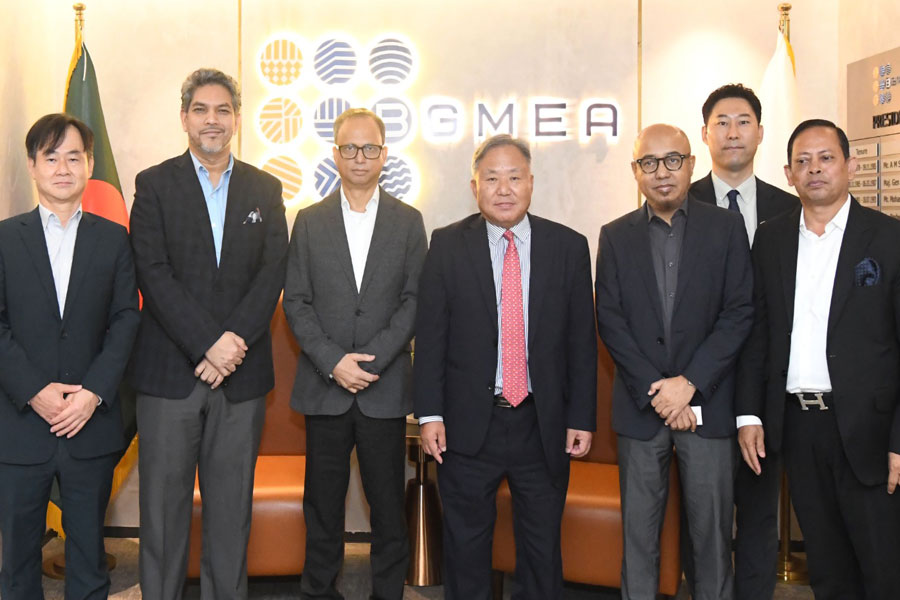Saif
Senior Member
- Joined
- Jan 24, 2024
- Messages
- 17,319
- Likes
- 8,344
- Nation

- Residence

- Axis Group


Korean EPZ finally gets mutation documents
The Korean Export Processing Zone (KEPZ), the single largest private export processing zone in Bangladesh, has finally obtained the much-needed mutation documents from the government on February 6, a move that may facilitate more foreign investment in the country.
Korean EPZ finally gets mutation documents
It may open doors for more FDI

The Korean Export Processing Zone (KEPZ), the single largest private export processing zone in Bangladesh, has finally obtained the much-needed mutation documents from the government on February 6, a move that may facilitate more foreign investment in the country.
Many proposals for foreign direct investment (FDI), such as Samsung, were withdrawn due to the lack of mutation documents for the KEPZ, said Shafiqul Alam, press secretary to Chief Adviser Prof Muhammad Yunus, at a press briefing in Dhaka yesterday.
Korean entrepreneur Kihak Sung, the highest merchandise exporter in the country from his company Youngone, also shifted some investment from Bangladesh to Vietnam for not having the mutation documents in a timely manner, the press secretary also said.
The government, which had earlier promised Sung to hand over the mutation document on February 6, fulfilled its commitment on time, raising expectations that FDI will return to Bangladesh.
Sung bought the land in Chattogram in 1999 and began setting up the EPZ on 2,500 acres of land.
However, he faced difficulties in obtaining the mutation documents due to government procedures and cumbersome processes.
It may open doors for more FDI
The Korean Export Processing Zone (KEPZ), the single largest private export processing zone in Bangladesh, has finally obtained the much-needed mutation documents from the government on February 6, a move that may facilitate more foreign investment in the country.
Many proposals for foreign direct investment (FDI), such as Samsung, were withdrawn due to the lack of mutation documents for the KEPZ, said Shafiqul Alam, press secretary to Chief Adviser Prof Muhammad Yunus, at a press briefing in Dhaka yesterday.
Korean entrepreneur Kihak Sung, the highest merchandise exporter in the country from his company Youngone, also shifted some investment from Bangladesh to Vietnam for not having the mutation documents in a timely manner, the press secretary also said.
The government, which had earlier promised Sung to hand over the mutation document on February 6, fulfilled its commitment on time, raising expectations that FDI will return to Bangladesh.
Sung bought the land in Chattogram in 1999 and began setting up the EPZ on 2,500 acres of land.
However, he faced difficulties in obtaining the mutation documents due to government procedures and cumbersome processes.






































